Schools are the only place to receive true education? toefl essay
JRob105 4 / 10 Feb 11, 2010 #2 Some people argue that schools are not the only place to receive true education, they refute that there are many places to receive education. I would make this two separate sentences, or separate it by a semi colon. However, I have two supporting reasons for why schools are the best place to learn. I would take out supporting, its unnecessary. Also, I would either change however to a different conjunction, or switch I and However. Schools can teach many useful skills and schools can give formal education by proven teachers. "Schools can teach many useful skills and can give formal education by proven teachers." And I would change proven to something different. It doesn't quite make sense in this context. So, there is no doubt that schools are the best place to receive proper and true education. Take out "So," schools can teach the most important skill to live in society, how to socialize with people. I would change "school" to "They". Otherwise its redundant Since students see their friends everyday, they will better know how to make friends and how to socialize with new people. Take out the second "how to". And change "friends" to something more general like peers or classmates. Some might argue that students will be able to socialize better in other places, but students can build real friendship and companions in school, encountering similar problems as their peers. The last part of the sentence doesn't go with the first They need to solve problems with their peers, they would eventually make friendship and bond between friends which would last for a long time. This is worded weirdly. Check subject verb agreement Also, schools provide education regarding diverse subjects, these subjects that students learn would be valuable for them in the coming years for them to have a job that they want. "Also, schools provide education regarding diverse subjects. These subjects that students learn will be valuable for them in the coming years when they go to find the job that they want." To illustrate, as a student I learned numerous information. Add "have" before learned Schools have taught me how to socialize, motivated me to study and to achieve my utmost. "Schools have taught me how to socialize, motivated me to study, and to achieve my utmost potential." Teachers who have studied so hard for the passion to teach students have great amount knowledge. "Teachers who have studied so hard with a passion to teach students have a great amount knowledge." There is great difference from formal and informal teachers since, formal teachers study so hard to achieve eligibility to teach students. Whereas informal teachers can just read out letters from books. "There is a great difference between formal and informal teachers. Formal teachers study hard to achieve eligibility to teach students. Informal teachers can just read out letters from books." For instance, my brother who is a teacher at an elementary school, he has tried so hard to teach students. Take out the last part To sum up, schools can provide students with much of valuable information and schools are proven place where students can learn from knowledgable teachers. In this regard, I strongly believe schools are better place to learn. change "to sum up" to In conclusion. Take out "of". Add "a" in front of "proven". Add "a" in front of "better". I think the main problem you have with your essay in punctuation and grammar
EF_Kevin 8 / 13052 Feb 12, 2010 #3 Some people argue that schools are not the only place to receive true education; they contend that there are many places to receive education. However, even though school is not the only place to learn, I have two ... ...encountering problems similar to those of their peers. To illustrate, as a student I learned an enormous amount of information. By attending schools for twelve years, I learned so much information that I could not have learned in other places. Secondly, schools are places that are proven to have potential to provide students with high-quality formal education. For instance, my brother who is a teacher at an elementary school, has tried so hard to teach students. He studied very hard in science, English and Korean to teach children. After studying for two years he finally became a teacher and is teaching a lot of students. To sum up, schools can provide students with much valuable information, and schools are places where students can learn from knowledgeable teachers. In this regard, I strongly believe schools are the best places to learn. :-) nice job!! Keep practicing!!
OP chlghdgus 2 / 3 Feb 12, 2010 #4 thank you very much~:)
- Access your dashboard and other settings here.
- My Dashboard
- What's your big question?
- What's New

Is school | the best place to learn?
Millions of children attend school every day. But everyone learns differently, and schools vary across times and places. So, are schools really the best places to learn? Let's explore further…
Is school the best place to learn?
https://www.youtube.com/watch?v=dFwcrBCVq_Y&list=PLclYOU_uQvJNSeFoYewZ8iN4Lb_ZSE2QQ
Who said it? Match these quotations about school to their famous speakers...
“Education is the most powerful weapon you can use to change the world.”
- Mahatma Gandhi
- Nelson Mandela
- Mary Wollstonecraft
“The illiterate of the 21st century will not be the [person] who cannot read and write, but [the person] who has not learned how to learn.”
- First Lady Michelle Obama
- Scientist Stephen Hawking
- Futurologist Alvin Toffler
“If I were a headmaster I would get rid of the history teacher and get a chocolate teacher instead.”
- Andy Griffiths
- David Walliams
“Education is a lifelong journey. We never know everything, but we constantly evolve as we learn more about our communities, this ever-changing world, and ourselves.”
“I hope you’re pleased with yourselves. We could all have been killed -- or worse, expelled.”
- Hermione Granger
- Violet Baudelaire
- Mildred Hubble
“The best thing for being sad… is to learn something. That is the only thing which the mind can never exhaust, never alienate, never be tortured by, never fear or distrust, and never dream of regretting.”
- J.R.R. Tolkien
“And then the whining school-boy, with his satchel / And shining morning face, creeping like snail / Unwillingly to school…”
- Poet William Blake
- Poet William Wordsworth
- Playwright William Shakespeare
Why do we have to go to school, anyway?
Ever felt like not going to school, and wondered why you have to? Well, strictly speaking, in the UK, you don’t. You can be home-schooled, for example. But you do have to get an education - and generally, it’s been accepted that going to school is the ‘best’ way to do that. Oxford's Professor Iram Siraj (Department of Education) explores the purpose of what's taught in UK schools...
The word ‘school’ comes from the Greek 'skhole', meaning leisure or free time -- a break from working to engage in debate. And 'pedagogue' (another word for a teacher) means a child-guide. In Ancient Greece, this was typically a family’s slave whose job it was to escort boys to school and supervise them.
Throughout the ages, in the UK and Europe, the teacher has shifted from being a local religious figure to a trained professional. In the past, religious institutions tended to be the only places offering an ‘education’ and so lessons often focused on morality and studying religious scriptures. The space of the classroom has also changed over time, from children of all ages running around in the same room with no specific instruction to parallel teaching (where two teachers support a class), to the model we know today which is still essentially teacher-fronted and in rows. That said, some schools are moving towards more student-centred ways of teaching and group/project-based learning.
So who picks what you learn in school?
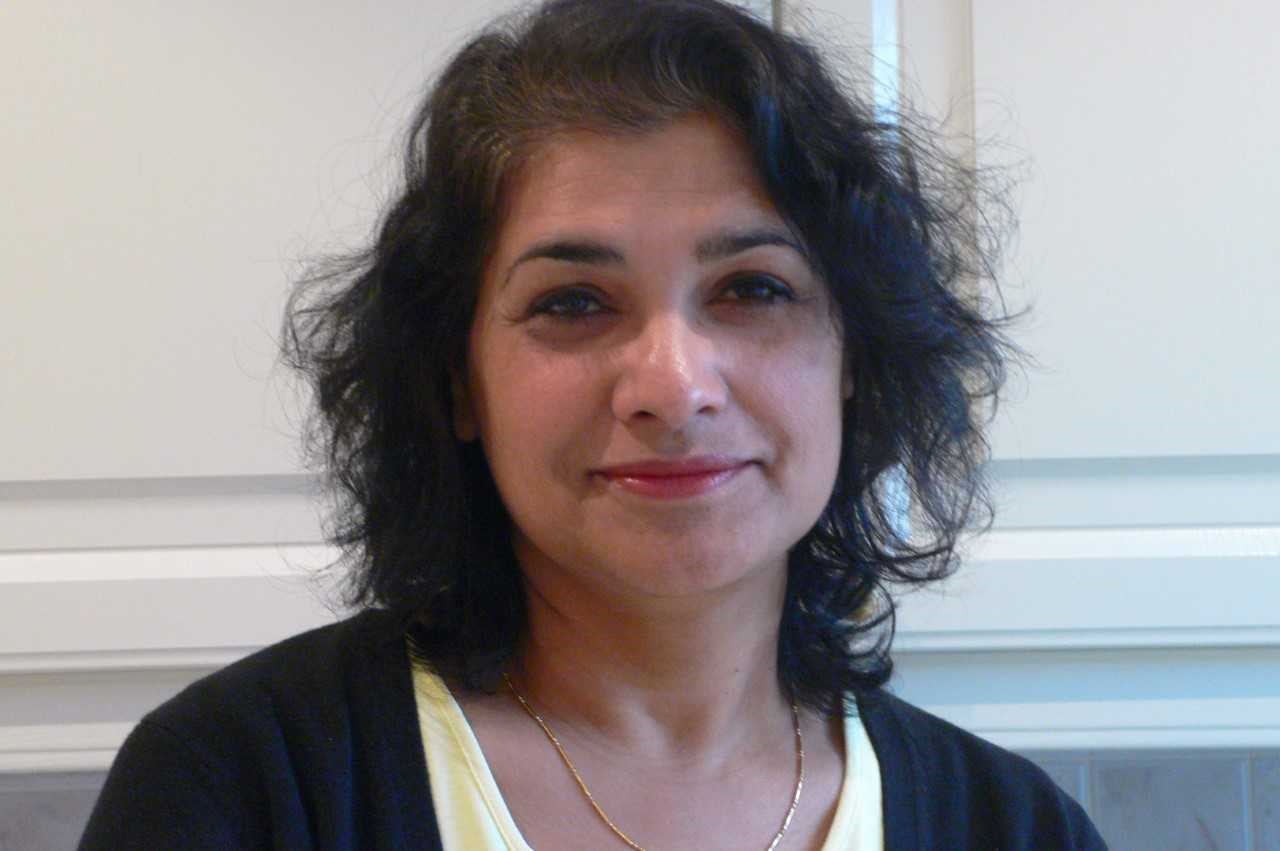
So the list of school subjects that young people have to study has changed. But that’s happened quite frequently across the years. In the Victorian era (1837-1901) -- when mass schooling as we know it today is thought to have begun -- there were very different ideas about how children should be taught and what they should learn.
“There were very young people out on the streets, and the Victorians were becoming increasingly concerned about the lack of basic knowledge for the population,” says Prof. Iram Siraj (pictured above right). “We were an information-poor society. We had very high rates of illiteracy, [and] there was no systematic way of teaching skills to people... reading and writing and so on.”
“[And so the focus of school became] about basic skills, social cohesion [i.e. learning how to behave properly and get along with each other], and creating a society where people could contribute more advanced things than they had in the past.”
Skills for life
Prof. Siraj says that it can be beneficial to give children activities to work on in teams, encouraging them to solve genuine problems and ensuring that they feel like they are really contributing to an issue, rather than simply learning things to be tested on.
There is more to school than simply learning facts, and a teacher's role is important in all of this.
Teachers do more than just tell pupils what to do, they encourage students and help them learn how to learn. For example, they can help pupils develop the skills needed to be able to weigh up how useful or accurate a piece of information is.
Plus, Prof. Siraj explains that children do better in secondary school if they’ve been shown useful social skills in primary school. One of the most vital of these is self-regulation. This is because if you can self-regulate (i.e. keep trying when something’s difficult, concentrate on what you have to do, and not lose your temper or get upset), then you’re set up to do well when it comes to school and beyond.
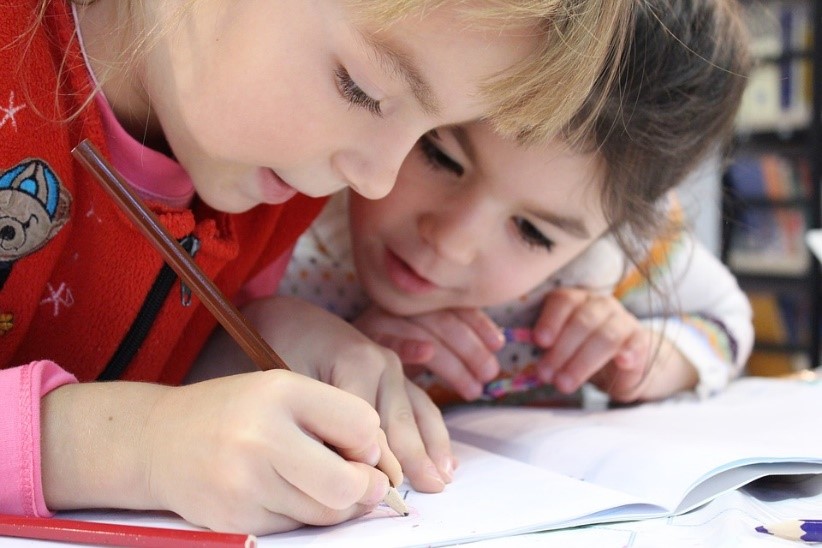
Into the future
Prof. Siraj explains that the ability to self-regulate is something that is increasingly helpful to today’s young people when they enter the workplace as it’s likely that they will be doing lots of different jobs during their lifetime.
“We have too much information,” says Prof. Siraj. “We have knowledge on the internet doubling every couple of years. The nature of schooling has become very different. It can’t just be about subjects anymore. It needs also to be about how we learn to learn, and how we can continue to learn and adapt according to what’s out there. In previous generations, people had a job and they tended to have it for life. That’s not the case anymore. You’re going to need more flexibility and multiple skills.”
Prof. Siraj thinks that many young people today are able to adapt to different situations and different tasks but she isn’t sure that schools necessarily always help them do that.
“We’re going to need a whole different level of skills -- and the world is developing rapidly,” she says. “We have children with many of these thinking skills -- but are we appreciating them in schools? I don’t know.”
So do schools need to change? Do they need to use more modern technology to help young people learn? And is learning alongside your friends distracting or brilliant and inspiring? What do you think?
What was it like to go to school in the 1800s.
Professor Siân Pooley from the Oxford History Faculty explains how today's schools are shaped by their Victorian past. She discusses what's changed since the early days of state education, and why going to school in the 1800s may not have been as scary as you might think...
https://www.youtube.com/watch?v=Ztp076SOjEE&list=PLclYOU_uQvJNSeFoYewZ8iN4Lb_ZSE2QQ&index=4
An open air classroom for Maasai children in Tanzania, East Africa.
Pupils in Afghanistan learning outdoors in the shade of an orchard since their school doesn't have a building.
American High School Students prepare to take part in the international FIRST Robotics Competition.
A classroom in Cambodia built by local villagers with support from not-for-profit organisation, Unite World Schools.
A classroom in Vietnam centred on the Escuela Nueva model which promotes learning through student discussion and guided independent work.
A private school in Indonesia where there's full wi-fi access and students are asked to bring a Mac computer to school.
A temporary community learning space in Haiti following the 2010 earthquake.
The Oxfordshire Hospital School has been using a robot to help include students in lessons and school trips.
Did you know?
... that football results could affect school grades? For students who sat their GCSEs in the early 2000s, the odds of achieving 5 Cs or more fell by 12% during World Cup years ( source ).
How does the design of a school affect our experience of learning?
Oxford University researchers Professor Harry Daniels and Hau Ming Tse investigate how the way in which your school is built could be affecting how you learn...
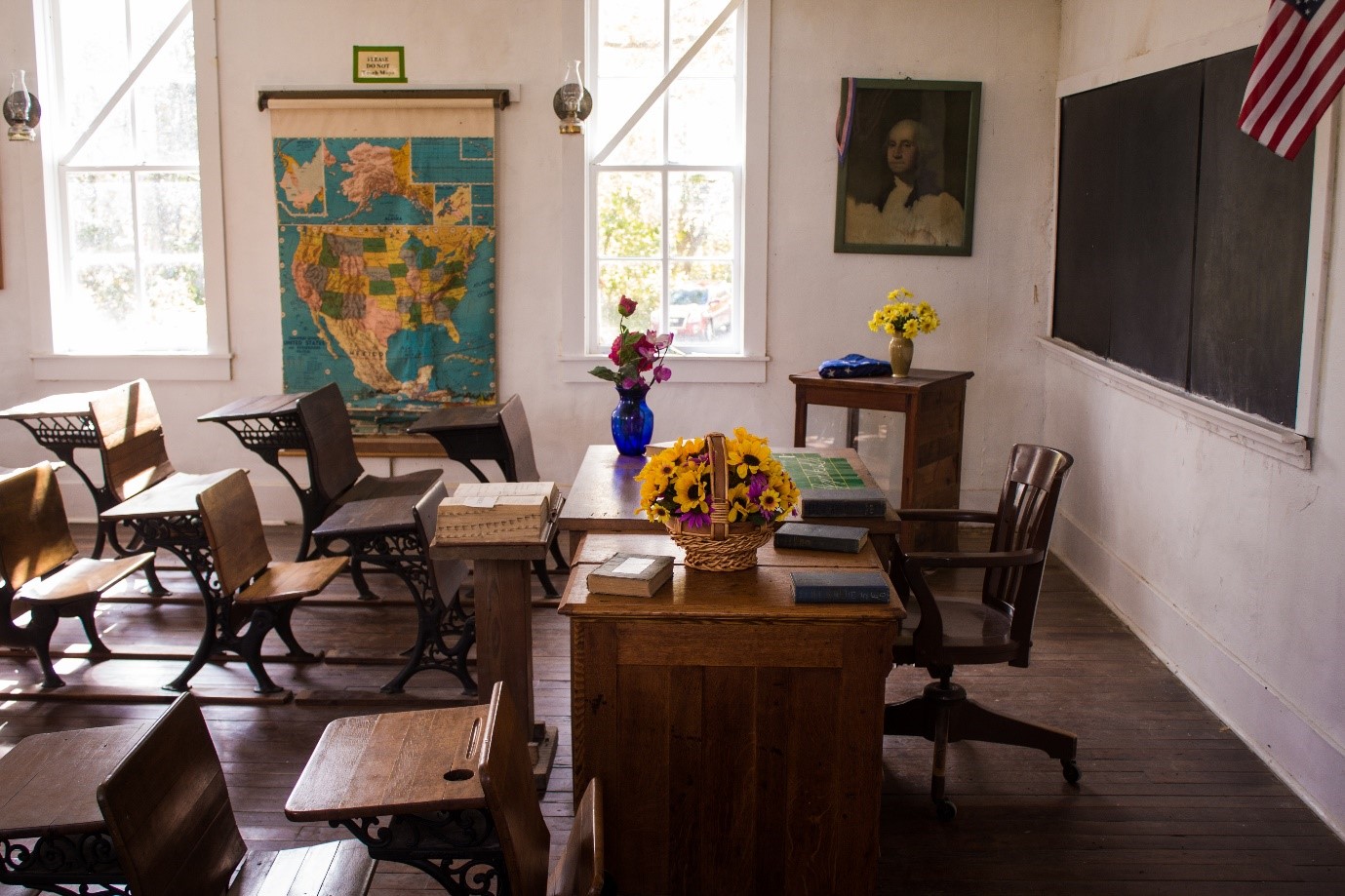
How does the design of a school affect our experience of learning?

This was the question that Oxford University researchers Professor Harry Daniels and Hau Ming Tse set out to answer when they looked at the experiences of five different secondary schools which had recently created new buildings.
Their study “Design Matters? The effects of new schools on pupils’, teachers’ and parents’ actions and perceptions” looked at a number of factors, including:
- How were school buildings designed in the first place? Who had a say in things like how big the classrooms would be, or whether there would be lots of open spaces? In some schools, these decisions might be mostly up to the head teacher, but in other schools teachers, parents and even pupils might have been able to contribute too.
- What were pupils’ expectations before beginning at a new school? Did they prefer schools that were similar to the environment they’d experienced at primary school, or did they respond better to a different type of building when they were older?
- How and why were the different spaces and buildings in the school used ‘in real life’ after they had been designed and built? Did these match the expectations of the people who had planned them, or did teachers and pupils use the spaces in unexpected ways?
The researchers then put all of these findings together to try to figure out what the ‘built environment’ (the way in which the school was designed and built) said about the priorities of the school as an organisation.
To do this, they drew on the work of the Russian philosopher Lev Vygotsky , who argued that cultural artefacts (like buildings) have an effect on people’s experiences of cultural and social institutions.
What does that mean?
Let’s imagine that a shopping centre is built in a way that means you have to make a purchase at a café or restaurant to be allowed to sit down. For a person who doesn’t have much money, the shopping centre could represent a very unwelcoming place. This is because they might have to stay standing up and moving around for a long time, or choose to spend more than they can afford just to be able to sit down and rest. By contrast, a shopping centre where the architects have chosen to include free public seating as part of the design will be more welcoming, and could lead to an overall more positive experience, especially for those who might have a special need to sit down more like elderly or disabled people. That’s a very simple example, but it does show the ways in which the choices made by architects can affect people’s ability to take part in public life.
What do you think? Think about your current school, and make a list of some of the features of your school building/s. For example, are there long narrow corridors or open spaces? Does the outdoor area have seating or no seating? Are there spaces to play sports, and are they available to everyone or only some groups of pupils? How do all of these factors of the built environment affect your experience of school?
So what did the researchers find after speaking to pupils and teachers? The things they learned included:
- That the design of buildings and classroom spaces definitely does impact the experiences of pupils and staff!
- As schools change over time (for example, becoming bigger or smaller as people move to or from an area), flexibility and adaptability are key design requirements. Things like moveable walls, spaces to accommodate new technology and sports areas that can be adapted for several different sports or games can allow schools to adapt more easily to changes in the number of pupils attending or their age profile.
- Some schools had very positive experiences with large-group open-plan learning where pupils from different classes or age groups can work together at once. This lets pupils move between groups according to their needs and level of attainment, and allowed teachers to work together and move between classes too. Giving teachers training on how to make the best use of open spaces helped a lot with this!
- However, some other schools found that open-plan environments were distracting or stressful for pupils and teachers, especially if they didn’t have good soundproofing or sound-deadening material to keep the noise down! At one school, teachers even dragged bookshelves around to create makeshift ‘walls’ because the open-plan space became too noisy to use.
- In schools where the head teacher worked closely with the builders and contractors doing the actual work of putting the building together, better results were achieved at lower cost. Where there were opportunities for miscommunication about what was achievable with the budget and materials available, teachers and pupils were less likely to be happy about the end result when they came to use the building.
In the video below, researchers, teachers and pupils explain more about the importance of school design and the project's findings:
https://youtu.be/vqc5natH8vk
What do you think? If you were a head teacher or architect designing a new school environment, would you prefer large open spaces or self-contained classrooms? How could you design the building in a way that would make it easy to adjust and adapt for a smaller or larger school population, new technology or changes in the kinds of subjects your school offered?
Want to know more? This article is based on a video lecture from Professor Harry Daniels and Hau Ming Tse. You can watch the full video online here , or check out the “Design Matters” project website here .
What is outdoor education?
Can the forest be a classroom too? Oxplore intern Charlotte visited the Hill End Outdoor Education Centre in Oxford to find out...
https://www.youtube.com/watch?v=uuSm0hJgYMI&list=PLclYOU_uQvJNSeFoYewZ8iN4Lb_ZSE2QQ&index=3
"You won’t allow me to go to school. I won’t become a doctor. Remember this: One day you will be sick." - Lima Niazi, aged 15 from Afghanistan ( source ).
Is school the best place to learn a language?
Is it better to learn a language in school, or to be dropped into a new country and try to pick it up as you go along? The Oxford Faculty of Classics' Dr Robin Meyer compares the two experiences, and explains why language learning stretches your brain wherever it happens!
https://www.youtube.com/watch?v=y96F_zOvVK8&list=PLclYOU_uQvJNSeFoYewZ8iN4Lb_ZSE2QQ&index=2
Miss Agatha Trunchbull (Matilda)

''Small people should never be seen by anybody. They should be kept out of sight in boxes like hairpins and buttons. I cannot for the life of me see why children have to take so long to grow up. I think they do it on purpose.''
Professor Severus Snape (Harry Potter series)

"I can teach you how to bottle fame, brew glory, even stopper death -- if you aren't as big a bunch of dunderheads as I usually have to teach.” - Harry Potter and the Philosopher's Stone (1997)
Mr Wackford Squeers (Nicholas Nickleby)
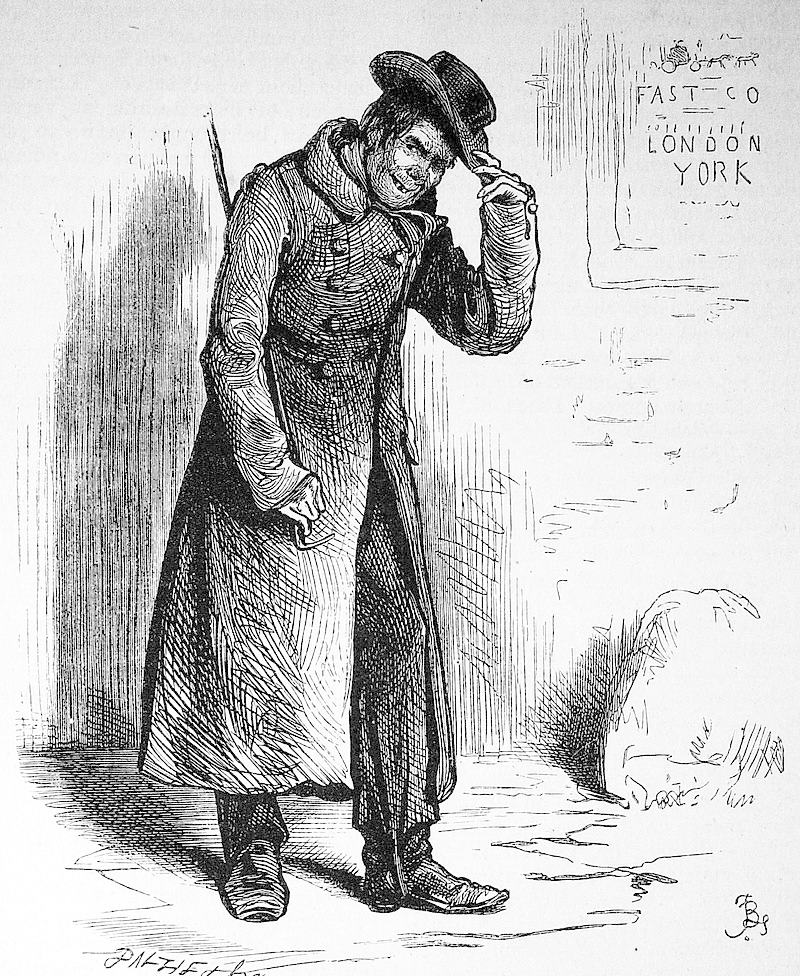
“Mr. Squeers looked at the little boy to see whether he was doing anything he could beat him for. As he happened not to be doing anything at all, he merely boxed his ears, and told him not to do it again.”
Did you know? You can read all of Nicholas Nickleby -- and a huge range of texts from this period and others -- completely for free online through Project Gutenberg .
Mr Brocklehurst (Jane Eyre)

“When you put bread and cheese, instead of burnt porridge into these children's mouths, you may indeed feed their vile bodies, but you little think how you starve their immortal souls!"
Did you know? Just like with Nicholas Nickleby, you can read all of Jane Eyre completely for free online through Project Gutenberg !
Image credit: Keith Rowley, " Porridge ", CC BY-SA 2.0
Ms Edna Krabappel (The Simpsons)

Image credit: Francis Bijl, "The Simpsons: Edna Krabappel ", CC BY 2.0
Top 10 best and worst fictional teachers

“Just because someone stumbles and loses their path, doesn't mean they're lost forever.”
Image credit: Maximilian Bühn, CC-BY-SA 4.0
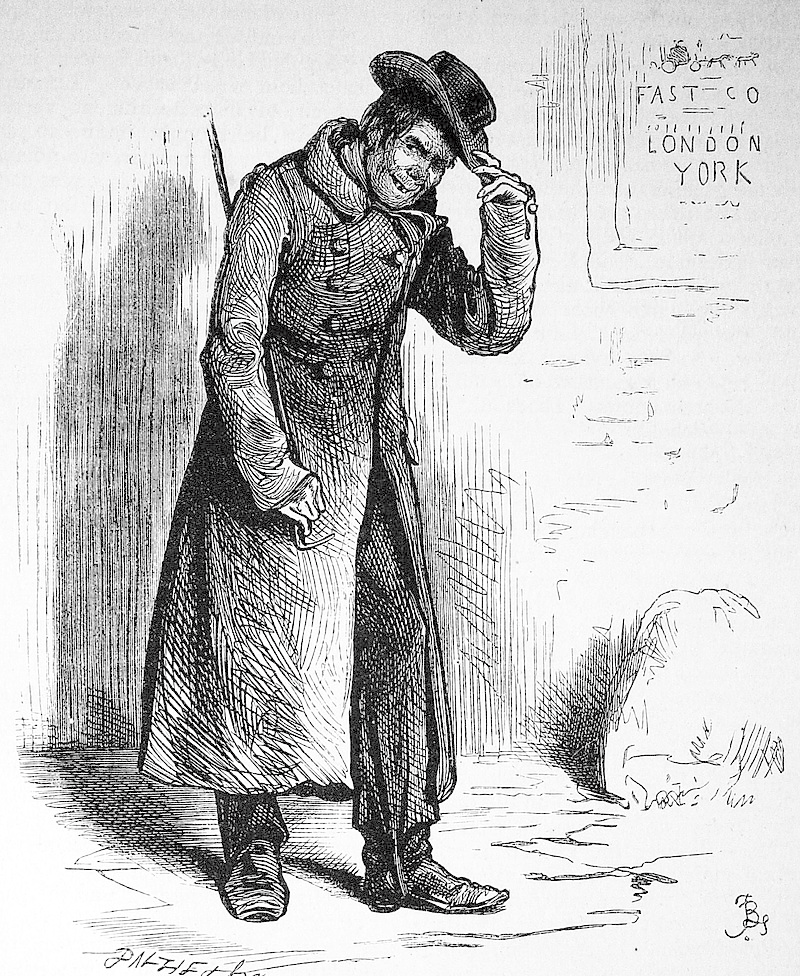
“Logic!" said the Professor half to himself. "Why don't they teach logic at these schools? There are only three possibilities. Either your sister is telling lies, or she is mad, or she is telling the truth. You know she doesn't tell lies and it is obvious that she is not mad. For the moment then and unless any further evidence turns up, we must assume that she is telling the truth.”
Image credit: " Narnia, Tring " by Rob Farrow, CC BY-SA 2.0

“You'll do well, Percy. Just remember your strengths and beware your weaknesses.”
What could school look like in the future?
What does the future hold for how students learn in UK schools? Could we see more use of Virtual Reality technology and Artificial Intelligence? Let's delve deeper...
The technology of learning has changed a lot over the years. But the internet and other now-familiar technologies were not the first new inventions to cause a stir in the classroom. When typewriters were first introduced in the 1930s, researchers studied the impact of this “new technology” on students. They were concerned about how children might react and how it could affect their writing ability.
Technology now is changing even faster than in the 1930s and as schools use these new inventions more and more we ask: What could school look like in the future? The main technologies that many experts believe will impact education are Virtual Reality (VR) and Artificial Intelligence.
Learning through Virtual Reality
VR is a simulated experience that can reflect the real world around you or be completely different. Think of it as being able to take a walk around your favourite video game.
Often confused with VR, Augmented Reality (AR) is a similar style of technology, adding a layer of virtual components such as digital images or sensations to interactions with the real world. For example, Snapchat and Instagram filters are both types of Augmented Reality. Click here to find out more about the differences between VR and AR.
VR techniques are already being implemented in some classrooms in the UK. Learning technologists from the University of Oxford used ClassVR headsets to help students from a school in Oxfordshire learn about the First and Second World Wars. Specifically, VR was used to help students understand the experiences of soldiers living in the trenches and show the reality of historical events. Click here to read more about this case study . Could VR field trips be something we see more of in the future? Do you think you would enjoy one?
Experts have found that VR headsets can improve learning ability and how students feel in the classroom. Research led by the University of Warwick has compared textbook-based, video, and VR learning in a biology classroom (Allcoat and von Mühlenen, 2018). The research found that it’s not the visuals and graphics of VR that helps learning, but the ability to interact with the environment. In addition, the students felt more positively about their learning experience compared with traditional textbook or video learning. With these sorts of results, we might see more VR in our classrooms in the future.
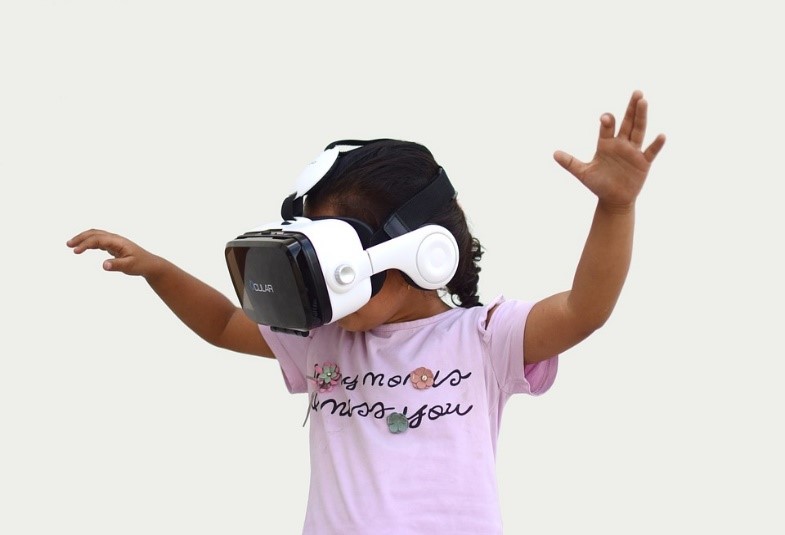
Beyond the traditional classroom setting, VR is already being used for a variety of other educational purposes. The Life-Saving Instruction for Emergencies ( LIFE ) is a healthcare-focused programme that uses VR to educate healthcare workers in developing countries on resuscitation techniques for babies and children.
https://www.youtube.com/watch?v=xsCnJUA0LRY
VR technology has applications in lifelong learning too -- particularly with the development of vocational skills, such as technical training for work in the trades. These programs generally focus on providing students with hands-on instruction. For example, the car manufacturer Volkswagen have been using VR to train their mechanics on how to service and repair their products.
However, according to recent research , technology is not the effortless solution to education-based problems it's sometimes portrayed to be. Focusing on providing schools with hardware such as laptops or VR headsets is not always the best approach to improving education and making schools more effective. For example, not all schools can afford this technology and if they spend their budget on such tools, then it's likely that only a few students can use them at one time. Plus, if several schools can't afford them, especially in poorer areas, then the regional learning gap may increase. Studies have shown that for an educational technology to be effective in schools, the strategy for introducing it has to take into account the uniqueness of any given setting. In other words, it needs to appeal to the different needs and wants of the users (i.e. students, teachers etc.).
Artificial Intelligence in Education
There are many different definitions of Artificial Intelligence (AI), but broadly it describes a computer system designed to “think” intelligently like humans. AI already has many uses, from searching online with websites such as Google, to adverts on Social Media, to predicting and treating diseases. Similar to how many people felt about the Internet and online-learning coming to classrooms in the mid-2000s, the idea of using AI in classrooms concerns many researchers and parents alike.
How your AI teacher learns
How artificial intelligence works is pretty simple. AI systems are first shown patterns and information from data provided by human programmers. Following this, they then learn through their own experiences without being told what to do. The more layers of learning and programming that are involved, the ‘deeper’ the learning. Much like people, AI learns to make good guesses from being told what a good answer looks like and what a bad answer looks like. In fact, some AI deep learning techniques, called ‘neural networks’, are even built to work like the human brain!
You might not be able to believe it now but virtual assistants like Amazon’s Alexa or Apple’s Siri could soon be helping us learn in our classrooms. This is because AI works by comparing information it is given by the student with a huge volume of preloaded datasets. And so it could, in theory, be used to mark students’ work. Some companies are even looking to use AI to teach and tutor students when they're struggling at home with homework and preparation for tests (content that their parents may not be able to help with). But many researchers believe that AI will not replace teachers as their roles of care-taking and looking after students are so important in schools.
The problem of AI
Across applications of AI, there is much discussion on how it can be used well and in a way where it benefits everyone. In talking about AI, many use the term “algorithmic accountability”. Whilst this sounds complex, what it means is: Who is held responsible for the results of a computer programme? Since AI is made by humans, it can have biases and mistakes programmed into it that can have big consequences. For example, imagine if a self-driving car has to swerve to avoid running over Animal A in the road. Would it still make the decision to swerve if there is another animal, Animal B, on the pavement that might be injured? What decision should the computer programme in the car make? Researchers at Oxford are leading a project on understanding how AI works and making sure it works for everyone ( source ).
Because AI learns, it changes how it understands what is the right or correct action to take in a given situation. If we decide to bring AI into the classroom, researchers and politicians need to think about what effects it might have. The FutureMakers podcast features academic debating on the problems of Article Intelligence in different areas of society.
What do you think? Could you imagine your teachers drawing upon VR and AI technologies in your lessons? Do you think some subjects may benefit more from a change like this?
- Is school the best place to learn? University courses to take this further...
- Dig deeper with a student...
- What goes on in teachers’ brains as they help students to learn
- The Pygmalion Effect and the Golem Effect -- how do teachers’ expectations affect their students?
- Is school always fair?
- Artificial Intelligence and Machine Learning
- Brain development in teenagers
- Do online courses make access to education fairer?
- Could starting the school day later help us learn?
We use cookies to help give you the best experience on our website. By continuing without changing your cookie settings, we assume you agree to this. Please read our cookie policy to find out more.

Essay on Importance of School
Students are often asked to write an essay on Importance of School in their schools and colleges. And if you’re also looking for the same, we have created 100-word, 250-word, and 500-word essays on the topic.
Let’s take a look…
100 Words Essay on Importance of School
The foundation of education.
School is the first step in our educational journey. It’s where we learn basic skills like reading, writing, and arithmetic.
Developing Social Skills
In school, we interact with classmates and teachers, learning how to communicate, work in teams, and respect others.
Character Building
School teaches us discipline, responsibility, and the importance of hard work.
Preparing for the Future
School equips us with knowledge and skills needed for college and careers, paving the way for a successful future.
In conclusion, school plays a vital role in shaping our lives.
Also check:
- Paragraph on Importance of School
250 Words Essay on Importance of School
The foundation of knowledge.
Schools play an indispensable role in shaping the future of individuals and society at large. They serve as the initial platform where knowledge is imparted, forming the basis for further education and specialized skills. The importance of school education lies in its ability to create a strong foundation in a child’s life, contributing to their cognitive, social, and emotional development.
Developing Social and Emotional Skills
Schools are not just about academics. They are also the primary environment where children develop their social and emotional skills. Interacting with peers and teachers, participating in extracurricular activities, and learning to navigate social norms and relationships are critical aspects of a child’s education. These experiences help students understand the world around them, shaping their perspectives and attitudes.
Creating a Level Playing Field
Schools also play a crucial role in establishing equality of opportunity. They provide a platform where children from different backgrounds can learn and grow together. This diversity fosters a sense of unity, understanding, and mutual respect among students, preparing them for a globalized world.
Finally, schools prepare students for their future careers and lives as citizens. They equip students with essential skills such as critical thinking, problem-solving, and decision-making. These skills are not only vital for their professional lives but also for their personal growth and development.
In conclusion, the importance of school education cannot be overstated. It lays the foundation for lifelong learning, fosters social and emotional growth, promotes equality, and prepares students for their future. As such, schools are essential institutions for individual development and societal progress.
500 Words Essay on Importance of School
The cornerstone of education: the importance of school.
Schools are more than physical structures where children gather to learn basic academic concepts. They are the cornerstone of a society’s educational system, playing a pivotal role in shaping the future of individuals and, consequently, the community as a whole.
Knowledge Acquisition and Cognitive Development
The primary function of a school is to impart knowledge. Schools provide a structured curriculum, which ensures that students gain a comprehensive understanding of various subjects. This curriculum is not confined to academic knowledge alone but extends to essential life skills and moral values.
In schools, students are not only taught to read, write, and calculate, but they also learn to analyze, interpret, and apply the knowledge they acquire. This cognitive development is crucial in honing their problem-solving and decision-making abilities, which are indispensable in the real world.
Social Skills and Emotional Growth
Schools are the first social microcosm children encounter. They learn to interact with peers, understand the dynamics of group work, and navigate social hierarchies. These experiences are vital in developing their social skills, empathy, and emotional intelligence.
Moreover, schools provide a platform for students to express their emotions and opinions. Participation in debates, drama, sports, and other co-curricular activities helps students manage their emotions, build resilience, and foster a sense of self-worth and belonging.
Schools are instrumental in equipping students with the skills required for their future careers and lives. They expose students to a variety of fields, helping them identify their interests and aptitudes. Career guidance and counseling services further assist students in making informed decisions about their future.
Furthermore, schools instill discipline and a sense of responsibility in students. The structured environment of a school teaches students time management, punctuality, and the importance of fulfilling commitments, preparing them for the professional world.
Creating Informed Citizens
Schools play a significant role in creating informed and responsible citizens. They teach students about their rights and responsibilities, fostering a sense of civic duty. Schools also promote cultural awareness and respect for diversity, contributing to social cohesion.
In conclusion, the importance of schools extends far beyond academic learning. They are the cradle of cognitive development, social skills, emotional growth, career preparation, and citizenship. The experiences and lessons learned in school shape individuals and influence their future, underlining the critical role of schools in our society. Therefore, it is paramount to invest in and prioritize quality education for all, as the school is the first stepping stone towards building an enlightened and progressive society.
That’s it! I hope the essay helped you.
If you’re looking for more, here are essays on other interesting topics:
- Essay on Diwali Celebration
- Essay on Effects of Pollution on Human Health
- Essay on How to Reduce Air Pollution
Apart from these, you can look at all the essays by clicking here .
Happy studying!
Leave a Reply Cancel reply
Your email address will not be published. Required fields are marked *
Save my name, email, and website in this browser for the next time I comment.
- Free Essays
- Citation Generator

Why School Is Important...
You May Also Find These Documents Helpful
Why education should be important to the latino community.
Education is important to me because it is the key to freedom, key to having a better world, and the key to enlightening oneself. Education brings freedom to any individual mind who is trap from the cruel circumstances a person faces. The best example is Fredrick Douglas who used education to escape slavery. Education can make the world a better place to live in, which it can bring an end to poverty, end to racism, end of wars, and end life threating diseases. Finally but yet importantly, education can enlighten a person from creating new ideas or inventions the world has never seen before.…
I Am Malal The Influence Of Education
I believe that education is what influences and drives people in life. Everyone has a life or career goal they hope to achieve and education is what will take you there. Education will provide people with better opportunities to be successful in life. In the story I am Malala, Malala sacrifices her own life to help other people fulfill life. She fought for what she believed in and didn't let anyone or any obstacles get in her way. Having a education will not only change and improve one's point of view but also have an effect in your economic growth. Education is the most important thing to possess in life because no matter what life throws at you to knock you down, you will always have education to fall back on and get you far in life. Without education you cannot be successful and strive to your full potential.…
My Vision For America Essay
Education is extremely important. Without education, we would not have the technology that we have today. If we keep learning, maybe in the future someone will come up with a cure for cancer. We cannot forget about education or we will not be able to advance technology. If we did not have education, then we would not have doctors, lawyers, nurses, and many other important jobs.…
Why Attending School Is Important
The decision to attend college has undeniably always been of tremendous significance. However, the third millennium offers new possibilities because in parallel of the traditional brick and mortar colleges, digital universities have progressively appeared over the past decade. However, what triggers someone to enter such a kind of virtual institution of higher education? What can expect an individual from them? Does it necessitate particular competences? Do the curriculums present new or supplementary impediments? What are the ingredients of a successful story? Such questions haunt the nights of countless would-be students, and especially one of them: me.…
How Is a Good Life Defined, and What Is My Plan to Achieve It?
Education is very important, it let people to study political, economy, science and technology so that have a good life. In China, there is an old saying, through studying you will gain success and fortunes will follow. Reading brings us everything. If we want to learn a lot of things, we…
David Brooks The Importance Of Education
Rene Guerrero 02/23/2015 Eng 101 Education is undoubtedly an essential and important tool for every single person. It plays an important role to shape and define the success of an individual. The lack of a good education will complicate a person’s efforts to move up in the world, seek a better job, and achieve a successful career and life. The importance of education is crucial and it starts at an early age.…
Academic and Career Goals
Furthermore, education is the most important aspect in people’s lives. It is becoming even more important than it has been in the past. In today's society, education is essential in order to be successful economically and socially. The benefits of education are boundless. I believe the stages from elementary to high school; students are getting an inadequate amount of education. Furthermore, education is a mandatory process. Individuals who continue their education in colleges and universities will become more experienced meanwhile increasing their chances of getting a well-paid job.…
American Dream Education
Furthermore, proper education is key to becoming successful and moving up in the ranks of any career people choose. Stated by the Reference website that explains the necessity for proper schooling, “Education is the key to success because it opens doors for people of all backgrounds, and it expands the human mind with knowledge. The vast amount of knowledge gained through education prepares individuals to solve problems, teach others, function at a higher level, and implement transformational ideas. Without education, one’s chances for securing a good job and ascending to a higher economic and social status are often limited”. In other words, even though the first step up the massive stairway to success is education, many steps have to follow to reach the…
What Is The Importance Of Education In To Kill A Mockingbird
Proper education is a vital stepping stone in the advancement of human life, and without it their would be no meaning in life. Schools were founded on the bases of educating the youth, however recently the success rate has plummeted. Just imagine a world where everyone is equally and adequately…
My Teaching Philosophy Statement
I believe that education is one of the most important things a person can have in this world. Without it a child would not be able to grow, change, or learn more information. I believe that school serves the purpose of forming children into young adults by teaching them social, physical, and cognitive skills that are crucial for the real world. They learn about other countries, their own country, but mostly themselves. By getting involved in academic clubs, athletics, or the arts students explore their interests through the school.…
Multicultural Education in America
Education provides such insight and knowledge about our society and cultures. Crime would be much higher, racism would be much stronger and our economy would be so low if it wasn't for education. It's important for our country to be able to provide opportunities for everyone to get an education.…
We learn the most from those closest to us
Learning includes the moral values, the improvement of character and the methods to increase the strength of mind. Our school is a good example of this. We are the recipients of the most important essentials and fundamentals imparted regularly by our teachers. The importance of school is quite clear. Education is the knowledge of putting one's potentials to maximum use. One can safely say that a human being is not in the proper sense till he is educated. The training of a human mind is not complete without school. Education makes man a right thinker. It tells man how to think and how to make decision. Through the attainment of education, man is enabled to receive information from the external world; to acquaint himself with past history and receive all necessary information regarding the present. With education a man finds himself in a room with all its windows open towards outside world. School gives us backgrounds in many different subjects and methods of learning. Learning how to read at a young age will allow the student to be able to learn through reading books for the rest of their lives. Reading, writing, simple mathematics and an understanding of how the world works are all completed in a lower level of school yet they are very significant skills for a person who is living in our world today. It gives student the experience and the confidence that they will be able to use in many life situations and confidence later in life when they are dealing with the public. As people are attending upper level school, we gradually obtain the concept of competition and have decided which area we have to focus on. This sets a bridge and people are prepared to go to the next stage of…
Understandin the Impacts of Education on Any Individuals
No human beings are able to survive properly without education. Education is the one who tells men how to think, how to work suitably and how to make decisions. It also considered as one of the basic needs like food, clothe, and shelter. Education is mostly taught in schools and they are responsible of doing so much more than teaching students basic skills and academic subjects. They are capable of teaching a variety of things a book. For example, they may teach a student how to drive, draw and paint pictures, compose music, speak another language or even help you meet various kinds of people. Education opens up a whole lot of opportunities for students to which can help them explore their interest and possibly their future profession. Thus, education is vital to life of each and every person for they are capable of pioneering possibilities beyond the book.…
Opinion Essay
Education is a pretty important factor to become a good person, to learn values, rules and a lot of more important things. Education is good all your live, since you have born until you are old. It's very important for all society, for all countries.…
How to improve quality of education or learning
Education is essential to everyone. It is through education that helps people earn respect and recognition. It is indispensable part of life both personally and socially, benefitting the society and his being as well. Providing quality education produces globally competitive individuals who can cope up with the innovations of the world. Every child should be given equal opportunities to learn and study. Because the development of a country depends vastly on the standard of education.…
Related Topics
- The Open University
- Accessibility hub
- Guest user / Sign out
- Study with The Open University

My OpenLearn Profile
Personalise your OpenLearn profile, save your favourite content and get recognition for your learning

Are schools the best place for children to learn?
We largely just go along with what the school decides our children should learn and with how this learning should happen. However, schools often have a narrow view of learning and how it can be achieved. Under everyday pressures, and drawing on a history of practice, schools tend to spend a lot of time focusing on mechanistic matters. The purpose of education seems to be subsumed by processes and structures, dominated by an overemphasis on what might be seen as component parts of any wider goal (e.g. types of behaviour, grades, particular bits of subject knowledge, certain skills, school identity). Consequently, many learners can be disabled by what schools offer and expect.
Doing the everyday
Research would suggest we should be doing it differently. The pedagogic approaches which have been shown to be effective are accessible for all practitioners (and for parents at home!). It is about giving people feedback and helping them to understand why they are learning something. It involves support from peers, learning with others, but also being expected to take responsibility for your own learning. Research into effective support for special education also recommends practices that build on traditional teaching skills and do not require extensive training or deep knowledge of individual impairment characteristics. The key to their success is teachers’ expectations of themselves and others in the learning space. Everyday inclusive outcomes are only deliverable when everyone is involved in the process, sharing their knowledge and experiences, particularly if they are engaging with a community of learners. In the lockdown imposed during the COVID-19 pandemic, of course, this wider engagement can seem like a challenge, but virtual spaces can be fantastic for this too. It is about creating a routine that gives learners the opportunity to experience things in lots of different ways, using a variety of resources and activities, as well as being able to use different media, so that they can engage all the senses.
Being creative
Everyday approaches to teaching also emerge from the empirical research into creative pedagogies. They rely upon an open ethos and high degree of acceptance of children’s ideas, setting aside time for learners to explore resources and generate ideas. They seek authentic, real-world, practical, open-ended problems, that allow for imaginative scenarios and extended projects. They focus on generating and exploring ideas, encouraging autonomy and agency, playfulness and problem-solving, involving co-constructing, collaboration and teacher creativity. They recognise a need for direction, boundaries and support, as well as for the teacher to be a creative role-model, but they also advocate independence and choice and having high expectations of the children. At their heart is risk-taking, an acceptance of failure and an embrace of experimentation.
A better place to be?
The deep irony about these research findings is that research shows that teachers tend not to base their practice on research. Within the constraints of our curriculum and assessment framework, teachers tend to echo back how they experienced formal learning. It is a very human response, but it does mean that school is not the best place to find the practices which support learning for all. Perhaps home can be?
- Learning is a social activity. If you do not know, enjoy finding out together. Fun makes learning memorable.
- Start with what your child knows and have a clear sense of what they could achieve. Have high (but not too high) expectations.
- Find a way to make what you are learning about relevant and meaningful to your child
- Keep listening and be willing to change what you are doing. You will have a lot to learn too. Be happy if something unexpected happens.
- Don’t be constrained by a traditional curriculum. Use a variety of resources, media and activities that engage all the senses.
Further reading
- Rix, J ., Hall, K., Nind, M., Sheehy, K. and Wearmouth, J. (2009) ‘What pedagogical approaches can effectively include children with special educational needs in mainstream classrooms? A systematic literature review’, Support for Learning , 24(2) pp. 86–94. Available from http://oro.open.ac.uk/17877/
- Cremin, T. and Chappell, K. (2019) ‘Creative pedagogies: a systematic review’, Research Papers in Education (Early Access). http://oro.open.ac.uk/66250/
Like this? Try a FREE course or read another teaching article

Remedying the impact of school closures: be kind, thank a teacher
How is the global pandemic shaping teaching and learning? Dr Liz Chamberlain, a Senior Lecturer in Education Studies, explores what 'lessons' are being learned...

FREE courses and content for school study
Back to school? Perhaps you want to gain some extra knowledge during the evenings or weekends. Check out our FREE courses, interactives and videos to help you continue your studies at home
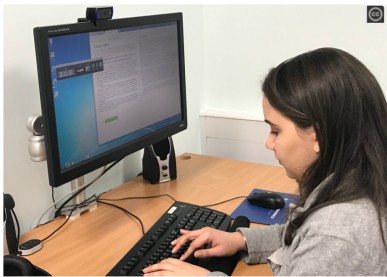
Distance education: Do students believe it should be fun?
The world is moving to distance education during the COVID-19 outbreak, this article presents students’ recent views about the place of fun within online learning.

Exploring books for children: words and pictures
Many people have fond memories of the stories they encountered in childhood, perhaps especially of those wonderful picture books and illustrated tales which fired our young imaginations and transported us to magical worlds. To an adult’s eye, some picture books may seem remarkably simple, even oversimplified. However, in this free course, ...

Supporting children and young people's wellbeing
This free course, Supporting children and young people's wellbeing, looks at some of the broader concerns regarding wellbeing and the idea that children and young people today are increasingly reporting feelings of unhappiness. By completing the activities, you will be introduced to different ways of understanding children and young people’s ...
Become an OU student
Ratings & comments, share this free course, copyright information, publication details.
- Originally published: Tuesday, 16 June 2020
- Body text - Creative Commons BY-NC-SA 4.0 : The Open University
- Image 'teacher telling off a chilld' - Copyright: Jonathan Rix
- Image 'Remedying the impact of school closures: be kind, thank a teacher' - Copyright: ID 176762740 © Sonerbakir | Dreamstime.com
- Image 'FREE courses and content for school study' - By Pixaby on www.pexels.com under Creative-Commons license
- Image 'Exploring books for children: words and pictures' - Copyright: Courtesy of Jackie Tuck
- Image 'Distance education: Do students believe it should be fun?' - Colearn Network CC-BY-SA under Creative-Commons license
- Image 'Supporting children and young people's wellbeing' - Copyright free
Rate and Review
Rate this article, review this article.
Log into OpenLearn to leave reviews and join in the conversation.
Article reviews
For further information, take a look at our frequently asked questions which may give you the support you need.
Share this article
The Edvocate
- Lynch Educational Consulting
- Dr. Lynch’s Personal Website
- Write For Us
- The Tech Edvocate Product Guide
- The Edvocate Podcast
- Terms and Conditions
- Privacy Policy
- Assistive Technology
- Best PreK-12 Schools in America
- Child Development
- Classroom Management
- Early Childhood
- EdTech & Innovation
- Education Leadership
- First Year Teachers
- Gifted and Talented Education
- Special Education
- Parental Involvement
- Policy & Reform
- Best Colleges and Universities
- Best College and University Programs
- HBCU’s
- Higher Education EdTech
- Higher Education
- International Education
- The Awards Process
- Finalists and Winners of The 2025 Tech Edvocate Awards
- Finalists and Winners of The 2024 Tech Edvocate Awards
- Finalists and Winners of The 2023 Tech Edvocate Awards
- Finalists and Winners of The 2021 Tech Edvocate Awards
- Finalists and Winners of The 2022 Tech Edvocate Awards
- Finalists and Winners of The 2020 Tech Edvocate Awards
- Finalists and Winners of The 2019 Tech Edvocate Awards
- Finalists and Winners of The 2018 Tech Edvocate Awards
- Finalists and Winners of The 2017 Tech Edvocate Awards
- Award Seals
- GPA Calculator for College
- GPA Calculator for High School
- Cumulative GPA Calculator
- Grade Calculator
- Weighted Grade Calculator
- Final Grade Calculator
- The Tech Edvocate
- AI Powered Personal Tutor
Teaching Students About the Definition of Solar Energy
Best bank, credit union, or mortgage lender in orlando–kissimmee–sanford, fl metro area, best bank, credit union, or mortgage lender in oklahoma city, ok metro area, best bank, credit union, or mortgage lender in omaha, ne-ia metro area, teaching students about the definition of urban sprawl, teaching students about cia directors, teaching students about the meaning of inertia in physics, best bank, credit union, or mortgage lender in ocala, fl metro area, best bank, credit union, or mortgage lender in norwich–new london–willimantic, ct metro area, best bank, credit union, or mortgage lender in north port–bradenton–sarasota, fl metro area, why are schools the only place learning matters.

When we think of learning, we tend to think of a school building, replete with classrooms, students, and a teacher. We never consider the fact that learning is something that we do 24 hours a day, whether we are conscious of it or not. This is baffling, because today, we have access to scores of research studies and reports about neuroscience, and how learning occurs. In this piece, we will discuss the neuroscience of learning and why schools are not the only place learning matters.
Wired from the start
From the moment we leave our mothers womb, we are learning, and our brains are working overtime to accomplish this. We learn first from our parents and our environment, and then through play, the most universal form of learning. So, when you pass by the window of a preschool, and you see a bunch of children playing, just know that they are learning too. When kids take a trip with their parents to the grocery store or to grandma’s house, they are learning.
Most learning is autodidactic
Self-directed learning has never been as accessible or powerful as it is today. We have instant access to people, information, and tools on the Internet. The truth is, most learning takes place outside of the classroom. So, you would think that educators understand that learning takes place anywhere and at any time. Unfortunately, they don’t. We need to recognize informal learning and its implications for how we educate our students for their futures.
We know that kids need a variety of opportunities to show what they have learned, and this can’t be done within the traditional P-20 format. Now that we have established that the classroom is not the only place where learning occurs or matters, how do we help our students leverage the opportunities for interest-based, autodidactic learning that can happen outside the classroom walls? This is the question that we must answer if we are to help our students maximize their human potential.
I am not saying that this is an easy task, as the traditional P-20 structure is rigid and resistant to change. It doesn’t seem to understand that the learning that students are doing on their own can them develop knowledge and skills that are deep, personal, authentic, and meaningful. I think that the first step to marrying learning inside and outside of school walls is to develop new ways of giving academic credit to self-directed, out of school learning. We should focus on creating a strategy first, and then scale it up slowly to gain acceptance and credibility. This means that we are going to have to reassess the traditional notion of student outcomes and the curricular pathways that we currently use.
What do you think?
The Psychology of Academic Achievement
How education reform taught teachers to cheat.
Matthew Lynch
Related articles more from author.
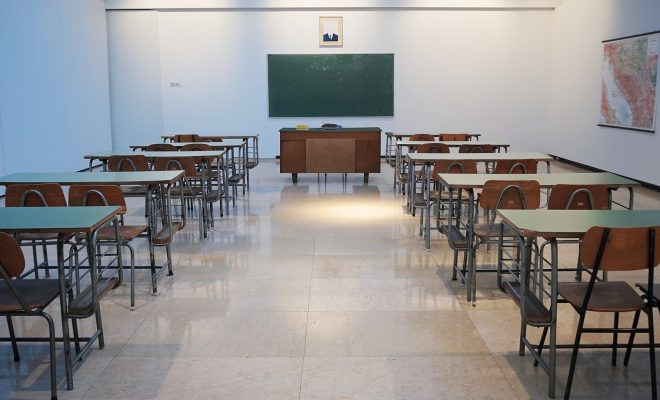
What cyber charter schools are and why their growth should worry us

X2VOL Improves Tracking of NHS Service Hours

Without teacher guidance, all the tech in the world will be quite useless

Corinthian 100 to have debt forgiven

The Edvocate Can Help You Promote Your Education Related Product or Service

Alma Takes Personalized Learning to the Next Level with Student Choice
- situs togel online
- situs toto 4d
- situs toto slot
- toto slot 4d
Home — Essay Samples — Education — School — The Importance of School
The Importance of School
- Categories: School
About this sample

Words: 548 |
Published: Mar 6, 2024
Words: 548 | Page: 1 | 3 min read

Cite this Essay
To export a reference to this article please select a referencing style below:
Let us write you an essay from scratch
- 450+ experts on 30 subjects ready to help
- Custom essay delivered in as few as 3 hours
Get high-quality help

Dr. Heisenberg
Verified writer
- Expert in: Education
+ 120 experts online
By clicking “Check Writers’ Offers”, you agree to our terms of service and privacy policy . We’ll occasionally send you promo and account related email
No need to pay just yet!
Related Essays
2 pages / 841 words
5 pages / 2422 words
1 pages / 378 words
4 pages / 2040 words
Remember! This is just a sample.
You can get your custom paper by one of our expert writers.
121 writers online
Still can’t find what you need?
Browse our vast selection of original essay samples, each expertly formatted and styled
Related Essays on School
The phenomenon of "hallway hangers" has become increasingly prevalent in educational institutions across the country. This term refers to the practice of students gathering and lingering in school hallways during class time, [...]
The job of a school counselor isn't just about helping with grades and homework. Nope, it’s way more than that. They’re like the go-to person for emotional support, career advice, and making the school feel like a better place [...]
School lunches have long been a topic of debate and controversy in the education system. From concerns about nutrition and health to questions about affordability and accessibility, the issue of school lunches affects students, [...]
School lunches have been a hot topic for ages. Everyone’s got an opinion, right? Some folks worry about how healthy these meals really are. Tons of studies say eating right is key to thinking straight and staying healthy. The [...]
Cheating in schools has always been a big problem. Students keep finding new ways to trick teachers and get ahead unfairly. They might sneak a peek at someone else's test or copy entire essays from the internet. This kind of [...]
As another school year draws to a close, it's a natural time to pause and reflect on the experiences, challenges, and growth that have shaped the past months. The end of the school year is more than just a transition; it's an [...]
Related Topics
By clicking “Send”, you agree to our Terms of service and Privacy statement . We will occasionally send you account related emails.
Where do you want us to send this sample?
By clicking “Continue”, you agree to our terms of service and privacy policy.
Be careful. This essay is not unique
This essay was donated by a student and is likely to have been used and submitted before
Download this Sample
Free samples may contain mistakes and not unique parts
Sorry, we could not paraphrase this essay. Our professional writers can rewrite it and get you a unique paper.
Please check your inbox.
We can write you a custom essay that will follow your exact instructions and meet the deadlines. Let's fix your grades together!
Get Your Personalized Essay in 3 Hours or Less!
We use cookies to personalyze your web-site experience. By continuing we’ll assume you board with our cookie policy .
- Instructions Followed To The Letter
- Deadlines Met At Every Stage
- Unique And Plagiarism Free

Request an Essay
Follow class ace for product announcements and ai tips & tricks:.

- Saved Papers
School Is the Best Place to Learn
- Home Page »
- Submitted By: samkraussa
- Date Submitted: 04/18/2010 12:28 AM
- Category: English
School is the best place to learn School is the best place to learn in three main ways. Academically; because of the teachers skill and range, socially; because of the school environment and also to learn study skills; through time management and goal setting. First of all, schools are adept at helping students to learn academically. To become qualified to teach in a secondary school you have to study for three years, minimum. The fact that this training includes time teaching a class of students under the observation of a qualified teacher, as well as being trained by experts ensures that teachers are well equipped to help school students learn. Another reason why schools are the best place to learn is because of the vast variety of subjects offered. Schools cater for students who prefer academic work as well as to students who prefer hands on work. Also, everybody learns at their own level, for example, if a student excels at mathematics but struggles with reading they will be accelerated in mathematics so they are continually simulated and challenged, whilst also receiving extra tuition in reading. Therefore, the school setting is the best place to learn academically. Secondly, schools have an ideal environment for students to learn socially. Schools attract teachers and students from all different ethnicities, cultures and backgrounds. People in classes together share so much time together they have to learn how to interact and behave with others who are different to them. Informal social skills are enhanced during breaks whereas students learn formal skills as they often come in contact with school staff. Students learn to respect adults. Students become socially adjusted through interactions at school. Lastly, students learn study skills that will be useful to them whatever career they choose. Time management is taught through assignments set over long periods of time with a set due date. The students then have to manage their time effectively...
View Full Essay
Similar Essays
- My Best Years in School
- The best way to learn a foreign language
- Children learn best by observing the behavior of adults and copying it.
- One of Mohawk High Schools Best Citizens
- Learn theory
- learn english
©2024 Brainia.com
- Terms of Service
- Privacy Policy
- CA Privacy Policy
- Advertise With Us
EnglishGrammarSoft
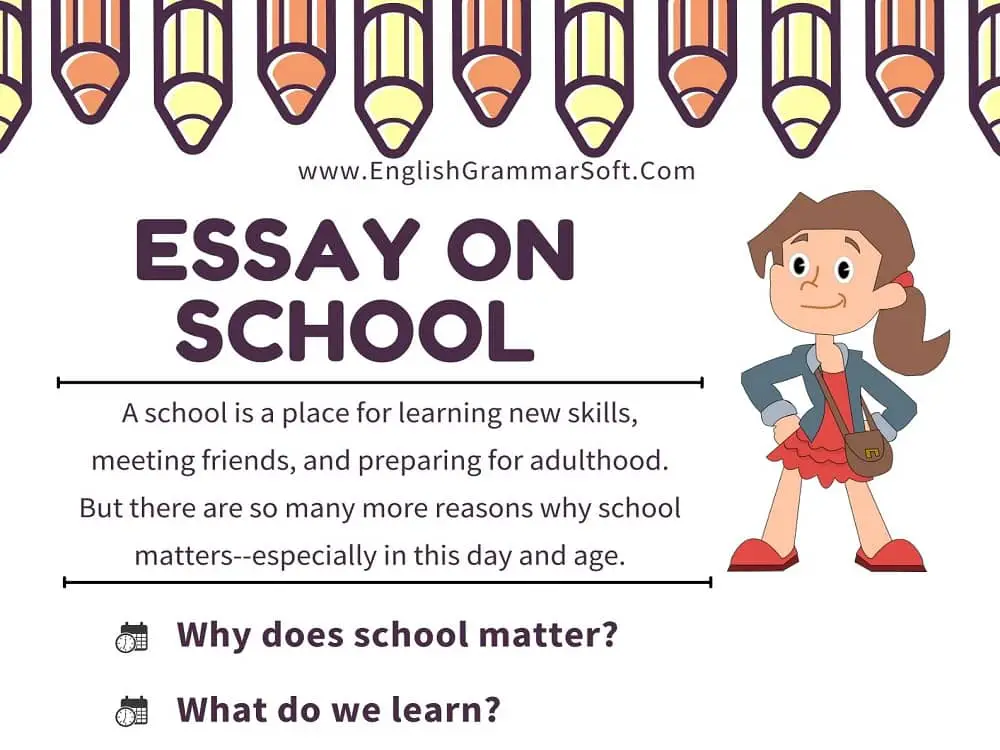
An Essay on School Life (Importance of School)
An Essay on School
A school is a place for learning new skills, meeting friends, and preparing for adulthood. But there are so many more reasons why school matters — especially in this day and age.
Here are some ways the school can benefit you. Learn about the importance of school and find out why schools matter for everyone!
Why does school matter?
School is an essential part of our lives that will last until the end of our days. Some people may think that education is less important now than it used to be, but this is just not true.
Schools give us the chance to learn how to interact with others, develop leadership skills, and build our own networks. Plus, they provide us with skills that will help us start careers or make a living after graduation.
The average American spends about 12 years in school. School is an important part of our lives, and it’s not only where we learn what we need to know. It’s also where we develop as people and as learners. It’s a place for socializing, making friends, and getting to know who we are.
What do we learn?
The importance of school is so evident when we look at the new technology the kids use in the classroom. Students at Yucaipa High School in California are using the iPad with digital textbooks instead of paper textbooks, making it easier to read and absorb information.
Yet some of the most important and beneficial ways students learn to be better is by interacting with each other and caring about each other’s needs. This kind of interaction fosters a sense of belonging and collaboration that can extend to jobs and careers after school and in life.
However, kids these days also spend too much time on electronics. They’re never seen doing anything that resembles real work. Yet this isn’t how the real world works.
The importance of education
You’re more likely to get a job, one of the best reasons to attend school is to prepare you for the workforce.
It’s about more than just the facts. Teachers don’t just teach facts, they also teach students how to think critically. Teachers teach the whole student, helping them develop valuable social and emotional skills.
For many, a school is a place for forming friendships. They learn how to take responsibility for their actions and for taking care of their friends. But most importantly, they learn how to be smart!
What we learn in school is something that shapes our lives for the rest of our lives. The skills and knowledge that we learn in school will help us succeed in the future.
What’s the real purpose of school? It’s not just about tests, memorizing facts, and doing homework. Instead, school is the place where we learn how to think.
How schools prepare us for the future
As the kids head back to school this year, it’s important to take a moment and think about why schools are so important.
What do they teach us? What do they offer that is unique? Schools also play an integral role in shaping our future. Schools teach us how to learn, how to be social beings and skills that will help us in life.
They also give us time away from our parents, giving us the chance to explore who we are and what we want.
Schools are places where we can grow, make mistakes, make friends, make discoveries, and make memories. It’s not just about grades or diplomas. Schools can be a place of intellectual discourse or creative exploration. They prepare us for the future and enable us to live a high-minded life.
What skills do we learn in school?
There are many skills that we can learn in school, but three that stand out are social, academic, and job skills. By getting these skills early, we are more likely to have a competitive edge when we leave school.
If we learn social skills from the time we are little, we are less likely to be late to school. If we have friends, we are more likely to spend time with them outside of school.
And when we get home, we are more likely to share our day with our family. Our skills may be tested at school. Even if they aren’t tested, they are likely to be tested at some point in our lives. So many kids in schools today are acting out and it is often a way to avoid responsibility.
How does job training work?
Companies are already turning to teachers to develop the skills that students will need when they get out of school. And, as more teachers take classes on how to teach, the benefits are likely to increase even more.
It is a career in teaching that is beginning to take off. Teaching students isn’t just about looking after the physical health of students, it’s also about the development of their mental health.
Teaching jobs are in high demand, with more and more people wishing to pursue a career in teaching. It is one of the most important careers there is.
As teachers, we help shape the minds and souls of the next generation. When we teach, we understand something that most other jobs and careers can’t do–that it’s what we do, not what we say, that counts.
While the school has its strengths and drawbacks, overall, we shouldn’t forget the importance of going to school. With all of its bad points and all its good points, we’ve come a long way, and we have a bright future.
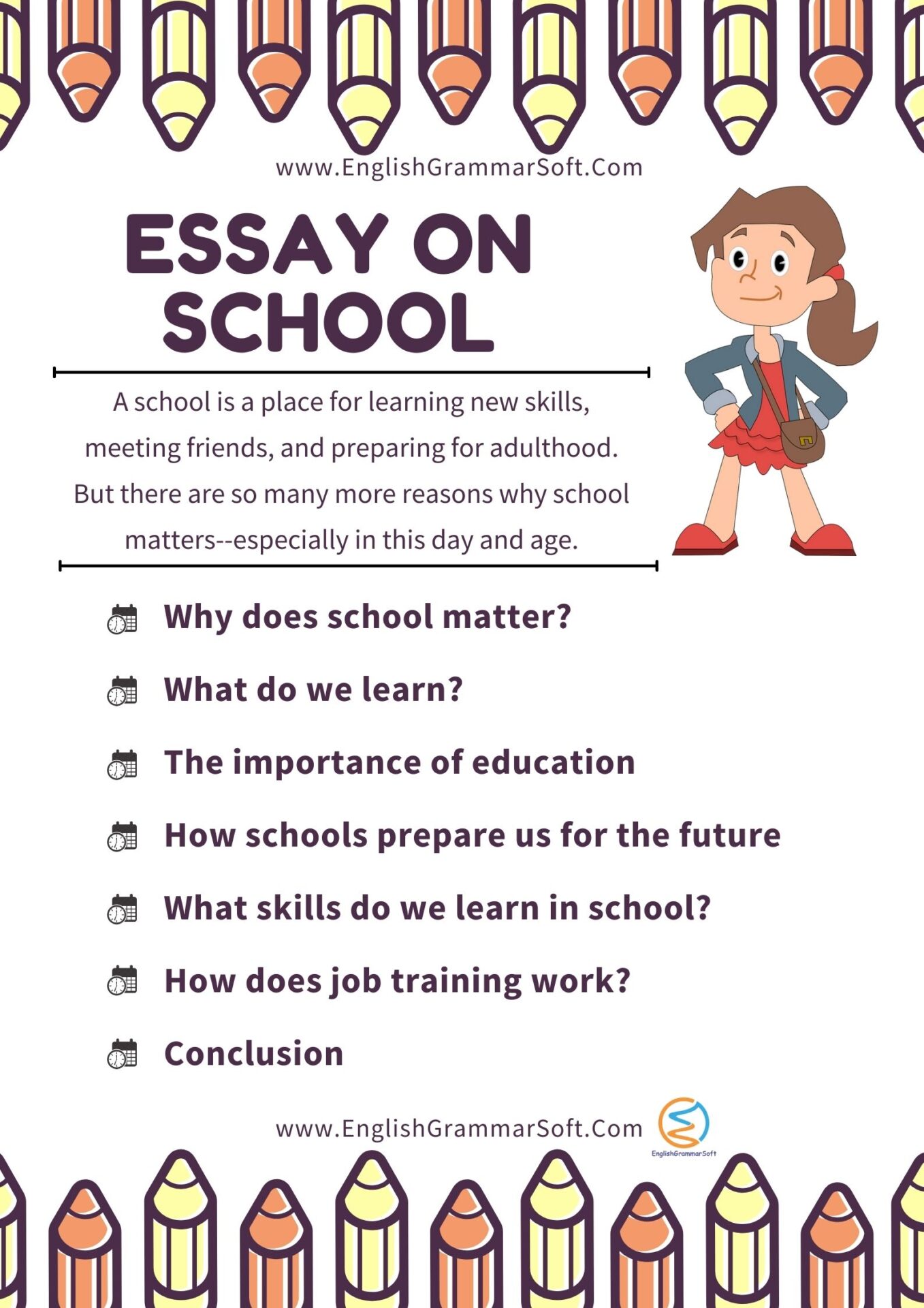
More on essays
- How to Write an Essay | Structure of Essay (Comprehensive Guide)
- Essay on Happiness is a State of Mind
- Essay on Education
- Essay on importance of education
- Essay on Friendship
- Essay about Anxiety and Stress
- Essay on Time Management
- Essay on 7 Cs of Communication
- Essay on 8 Business Functions
- Essay on Social Media and Its Impact
- Essay on Personality Development
- Essay on Importance of water in life
- Essay on Pollution
- Essay on Corruption
- Essay on Why Trees are Important in our Life
- 500 Words Essay on Nature in English
- Essay on Global Warming Causes and Effects
- Essay on Deforestation
- Essay on Smoking is bad for health
- A Short Essay on Mothers Day
- Essay on Health is Wealth
Similar Posts

Essay on Benefits of Reading (1300 Words)
Reading helps our minds grow in ways that we can’t be taught in school or at home. No one is born with an innate love…
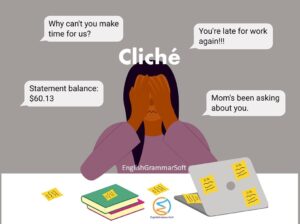
What is a Cliché? (Examples in Literature & Sentences)
What is Cliché? Clichés are often thought of as boring, unimaginative, and overused. However, clichés can actually be used to make your writing more interesting….

Essay on 8 Business Functions: What They Do And How They Work
Essay on 8 Business Function A business, in the simplest sense, is a group of people who work together to sell goods or services. The…

Present Indefinite Tense in English (Rules, Formula, 100 Examples & Exercise)
Present indefinite tense is a verb tense. It is used for actions that occur habitually or repeatedly at an unspecified moment that happens in the…
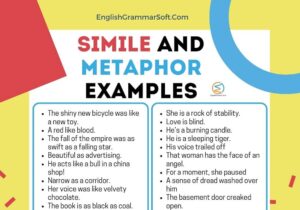
Simile and Metaphor Examples (50 Sentences)
Similes and metaphors are a great way to add some spice and help make your writing more interesting. For example, a simile is a sentence…
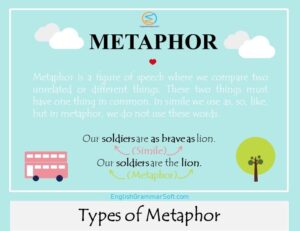
12 Types of Metaphor with Examples | Metaphor Vs Simile
Metaphor Definition Metaphor is a figure of speech where we compare two unrelated or different things. These two things must have one thing in common….
Leave a Reply Cancel reply
Your email address will not be published. Required fields are marked *
Save my name, email, and website in this browser for the next time I comment.

IMAGES
COMMENTS
Feb 11, 2010 · Schools can teach many useful skills and schools can give formal education by proven teachers. So, there is no doubt that schools are the best place to receive proper and true education. First of all, schools teach many useful skills. schools can teach the most important skill to live in society, how to socialize with people.
Some schools had very positive experiences with large-group open-plan learning where pupils from different classes or age groups can work together at once. This lets pupils move between groups according to their needs and level of attainment, and allowed teachers to work together and move between classes too.
Feb 18, 2024 · In conclusion, the importance of school education cannot be overstated. It lays the foundation for lifelong learning, fosters social and emotional growth, promotes equality, and prepares students for their future. As such, schools are essential institutions for individual development and societal progress. 500 Words Essay on Importance of School
The importance of school is quite clear. Education is the knowledge of putting one's potentials to maximum use. One can safely say that a human being is not in the proper sense till he is educated. The training of a human mind is not complete without school. Education makes man a right thinker. It tells man how to think and how to make decision.
Jun 16, 2020 · Within the constraints of our curriculum and assessment framework, teachers tend to echo back how they experienced formal learning. It is a very human response, but it does mean that school is not the best place to find the practices which support learning for all. Perhaps home can be? 5 Top Tips. Learning is a social activity.
Spread the loveWhen we think of learning, we tend to think of a school building, replete with classrooms, students, and a teacher. We never consider the fact that learning is something that we do 24 hours a day, whether we are conscious of it or not. This is baffling, because today, we have access to scores of research studies and reports about neuroscience, and how learning occurs. In this ...
Mar 6, 2024 · How Does School Affect Auggies Life Essay. School plays a crucial role in shaping a child's life and future. For many children, school is not just a place to learn academic subjects but also a place where social skills are developed and lifelong friendships are formed.
Write an essay about Is school a best place to learn. Asked on 1/17/2024, 1 pageview. Essays
Apr 18, 2010 · School is the best place to learn School is the best place to learn in three main ways. Academically; because of the teachers skill and range, socially; because of the school environment and also to learn study skills; through time management and goal setting. First of all, schools are adept at helping students to learn academically.
Sep 10, 2021 · An Essay on School: A school is a place for learning new skills, meeting friends, and preparing for adulthood. But there are so many more reasons why school matters --- especially in this day and age.